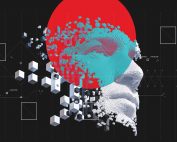
The coronavirus pandemic has exposed (yes, not created) supply chain vulnerabilities and hurt businesses across the globe. Although an event unprecedented by scale, COVID-19 would have ideally seen a response backed by robust contingency plans, which will likely be the case in the future. This piece, however, focuses on the present. Supply chains, manufacturing, and operations have all taken a hit, and enterprises are looking for a fix. Over a third of leaders in the US and Mexico, see their supply chain as one of the primary areas of concern in a situation that hasn’t fully played out yet. 41% of CEOs expect a large negative impact over the next six months, while 75% of US businesses have experienced a COVID-19-related supply chain disruption1.
There are aspects of this situation beyond anyone’s control, but too much attention to those areas can create a sense of learned helplessness. Enterprises are in both the prediction and the preparation business. It pays to evaluate the factors they can control while creating a second line of defense for those they may need to address later. Supply chain visibility and intelligence is one such factor. It’s simple, limited supply chain visibility is crippling operations and hampering growth. It can be challenging to understand, much less navigate, global supply chains given the amount of complexity, disparate data sources, and local nuances. How then can enterprises develop full visibility and inject intelligence into supply chain management? There is an answer, and it is critical to consider.
Supply Chain Management Needs Intelligence
Enterprises, and even countries in the current situation, have understood the importance of de-risking and building redundancy in their supply chain in an environment where the unexpected should be the norm, as evidenced by Japan’s decision to move manufacturing out of China.2 Trust in high-risk geographies will take time to restore, and that should not precede continuity. AI-driven technologies can now help enterprises build intelligence into their supply chain models to mitigate supplier risk. With several factors in the value chain disrupted, it is no surprise that global enterprises face the disruptions they do. Risk management is an essential function of procurement teams, and they need to have in-depth supplier knowledge that enables smarter decisions. Demand fluctuations are another area of development. With capacity and capital both at a premium, enterprises must find ways of dynamically aligning production and sourcing with demand. The resulting efficiency will free up resources, financial and otherwise, that can target business growth and resilience.
The Future of Resilient Supply Chains
By way of supplier understanding, spend analytics, and opportunity identification, procurement intelligence will drive the future of supply chains. Using AI-driven tools ensures that enterprises can develop a central growth engine that delivers focused insights across the organization. The core benefit of procurement intelligence is the ability to integrate data from disparate sources into a single source of truth that allows for efficient and forward-thinking planning. All too often, enterprise teams work within silos that create information asymmetry internally, affecting external efficiency. Consistent and accurate data streams ensure that leaders make smart decisions while considering any external factors that may affect operations.
Additionally, procurement intelligence can help firms maintain accurate records of suppliers not just by type but also by levels of risk. The understanding can allow for quick pivots. Furthermore, with access to near real-time and accurate spend data through comprehensive spend analytics, procurement leaders are in a better position to renegotiate supplier contracts and create better intelligence reports. Combined with personalized dashboards, this data can offer significant advantages by delivering contextual clarity based on the user’s role.
Possibly the most compelling feature of an intelligence-driven procurement team is opportunity identification. Opportunity identification signals procurement’s shift from reactive to predictive strategy, which is essential to transforming the department into a value center. Procurement intelligence tools can quickly uncover patterns and areas of opportunity before making specific recommendations. Supported by explainability, complete with an audit trail, and a confidence score, these suggestions can offer valuable assistance to procurement team members throughout the sourcing process.
The Benefits of a Digital Brain
Procurement intelligence doesn’t just free up resources for strategic work but also impacts enterprise performance in many ways.
- Better risk management and greater compliance
- Identification of top-performing suppliers for improved relationship management
- Valuable Business Insights and alternate supplier identification
- Additional Savings with optimized spend
- Improved supplier relations and engagement with negotiation insights and better supplier analysis
- Improved Visibility
- Increased productivity and reduced turnaround time
- Accuracy and consistency with spend classification and data harmonization
Discover the ProcureEdge Intelligence Hub
To identify exposure to high-risk suppliers, enterprises need to use an approach that integrates insights driven by internal and external data, supplier classification by essential and non- essential supplies, the impact of supplies on revenue, and the risk of disruption to supplies from suppliers’ financial constraints. Assimilating this information can help firms identify temporary measures to overcome disruptions while building a more sustained approach to business continuity.
Times like these remind us that it is crucial to transform supply chain management for greater resilience. Intelligence is essential to every stage of the procurement process. Enterprises must endeavor to build each aspect of their business into engines of growth capable of not just weathering but harnessing challenges to create new opportunities.
Along with the Intelligence Hub, ProcureEdge also offers a Data Hub and Digital Hub designed to augment your procurement operations without any changes to your legacy systems.



